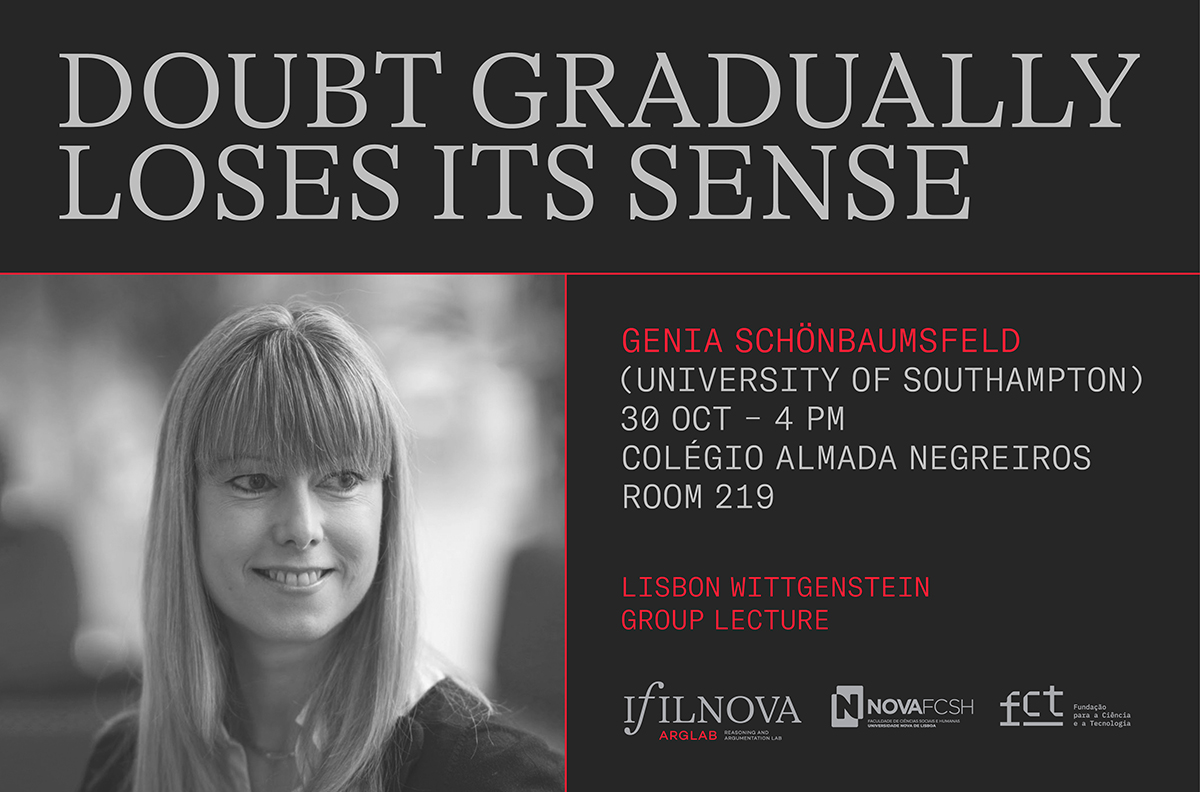Genia Schönbaumsfeld

The distinction between what is as it were ‘up for grabs’ – what is an object of legitimate enquiry – and what is part of the ‘scaffolding’ that makes such enquiries possible in the first place is a central one that Wittgenstein uses different metaphors to describe. He sometimes characterizes the scaffolding as ‘our picture of the world’ (OC §94), as ‘the rules of a game’ (OC §95), as ‘hardened channels’ for fluid propositions (OC §96), as a river-bed (OC §97), and, perhaps most famously, as ‘hinges’ (OC §342). Taking its cue from these passages, a new way of responding to scepticism has emerged in recent years that has come to be known as ‘hinge epistemology’. Although proponents of it offer very different anti-sceptical strategies and propose diverse readings of the nature of ‘hinge propositions’, they nevertheless share the core Wittgensteinian insight that there is a difference in kind between the ‘bedrock’ that stands fast and those ordinary, empirical propositions that can be investigated precisely because this scaffolding is in place. In this talk, I shall provide an account of what this distinction amounts to and respond to some objections that have been raised against it. This will enable us to dispel the misconception that Wittgenstein is a fallibilist about knowledge, and to understand how the difference between the ‘river-bed’ (the ‘scaffolding’) and the ‘movement of the waters’ upon it (OC §97) contributes to showing that doubt gradually loses its sense and that we can – in perfectly good epistemic faith – not accede to the sceptic’s game.
Bio
Genia Schönbaumsfeld is Professor of Philosophy at the University of Southampton and the author of A Confusion of the Spheres: Kierkegaard and Wittgenstein on Philosophy and Religion (Oxford University Press, 2007), The Illusion of Doubt (Oxford University Press, 2016), and Wittgenstein on Religious Belief (Cambridge University Press, 2023). In 2023, she was awarded a highly prestigious 2.5m ERC Advanced Grant for her project entitled ‘The Ethics of Doubt: Kierkegaard, Scepticism and Conspiracy Theory’. She is Associate Editor of the journal Philosophical Investigations, Advisory Board member of the Nordic Wittgenstein Review and Editorial Board Member of Anthem Studies in Wittgenstein. In 2020 she was elected to the Council of the Royal Institute of Philosophy.
This is the third Lisbon Wittgenstein Group Lecture, a series of lectures within the scope of the activities of the Lisbon Wittgenstein Group, coordinated by Nuno Venturinha.
Event supported by the Foundation for Science and Technology (Fundação para a Ciência e para a Tecnologia) of the Portuguese Ministry of Education and Science under the projects UIDB/00183/2020 and UIDP/00183/2020.

